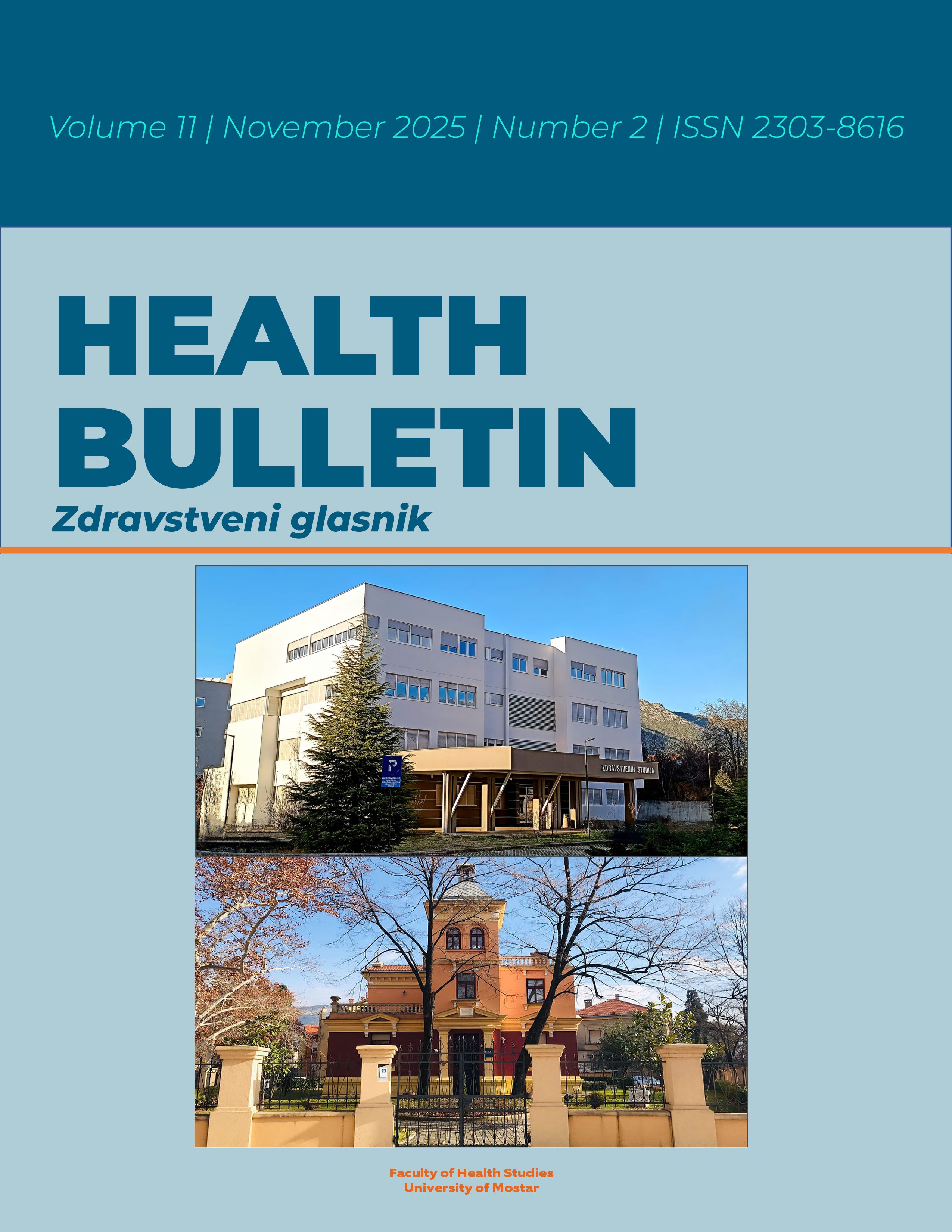DIETARY HABITS OF PHYSIOTHERAPISTS
DOI:
https://doi.org/10.47960/Keywords:
dietary habits, healthy eating, physiotherapistsAbstract
Introduction: Dietary habits, influenced by regional, cultural, and lifestyle factors, are crucial in maintaining physical and mental health. Healthy eating is often challenging in modern society, where sedentary lifestyles and processed food consumption prevail. Physiotherapists, as healthcare professionals, should set an example in adopting and promoting healthy dietary habits. However, research indicates that they do not always adhere to recommended nutritional guidelines, which may affect their health and professional performance.
Aim: To analyze the dietary habits of physiotherapists and their impact on health and professional efficiency.
Subjects and Methods: A cross-sectional study was conducted at the Faculty of Health Studies, University of Mostar, involving physiotherapists with at least a bachelor's degree. Data were collected via an anonymous online survey using a modified Food Frequency Questionnaire (FFQ). The study examined the frequency of food consumption, intake of sugar and salt, and habits related to fast food, snacks, and alcohol consumption.
Results: Most physiotherapists regularly consumed breakfast (79%), lunch (95%), and dinner (84%), while 61% had snacks. A significant number added sugar to beverages, while salt intake showed no gender differences. Fruit and vegetable consumption was below recommended levels, but cooked meals were preferred, and water intake was adequate. Male participants consumed more beer, while smoking was reported by 22% of respondents.
Conclusion: Although physiotherapists show awareness of healthy eating, improvements are needed, particularly in increasing fruit, vegetable, and fish intake. Nutritional education could enhance their overall health and professional effectiveness.
















